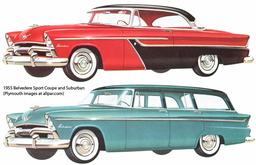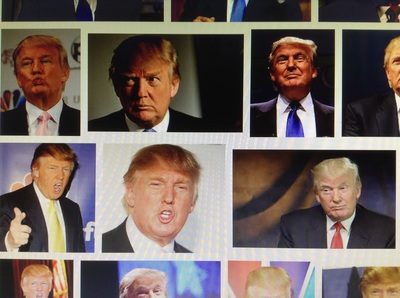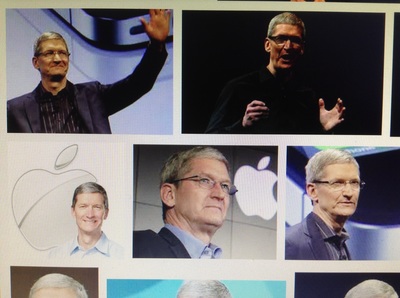The revolutionary new product star hoped for from the Cupertino crowd didn’t show up, although evolution of the iPhone continues unabated; a stronger case, better camera, new touch feature and Rose Gold color captured a moment’s attention each. The windowpane-sized iPad Pro was announced, along with “The Pencil”. And there was a hint of disruption to come with Apple TV. Thousands of devotees watched the product reveals unfold online and speculated about what Tim Cook and his subordinates had to say anew while watching Apple stock prices bounce up and down on their computer screens.
Viewers also anticipated something fresh and raw this week from The Donald -- and he failed to disappoint, although there wasn’t much substance in his pronouncements, just the usual mix of shocking lines about the continuing stupidity of the current bunch in D.C. or Carly Fiorina’s face. That Trump has tapped into an angry underground river of frustration about the country’s social, political and geo-political direction cannot be denied. The question, however, is now that he’s got everybody’s attention what is he going to do with it beyond entertain us with more indignant blathering? – other than help the media make more money (as CNN staff complains about how much Donald appears on their channel, and Huff Post now has a whole section devoted to nothing but Trump).

These days, most new car announcements produce all the excitement of a morning yawn, unless you’re a true aficionado, and I for one think we’ve lost a little something, because that wedge of the American can-do spirit represented by our automobile industry back then has all but vanished.
I have neither the expertise nor prescience to suggest what Apple may come up with next – if anything. But I do hope they have at least one more out-of-the-park home run in them, an innovative new product that we can anticipate with the kind of excitement that used to surround the announcement of next year’s cars.
As for The Donald, who tends to speak loudly and carry a big geo-political stick, and who changes his mind all too often about whatever's in his gun sights, including the phalanx of progressive social concerns that so concerns a wide swath of Americans, I’d like to think that he’ll eventually bow or flame out of the presidential race. In an odd way, the election process may have been refreshed for his having passed through it, like the sun after a violent rainstorm.
Content © 2015 by Brian E. Faulkner. All rights reserved.





 RSS Feed
RSS Feed